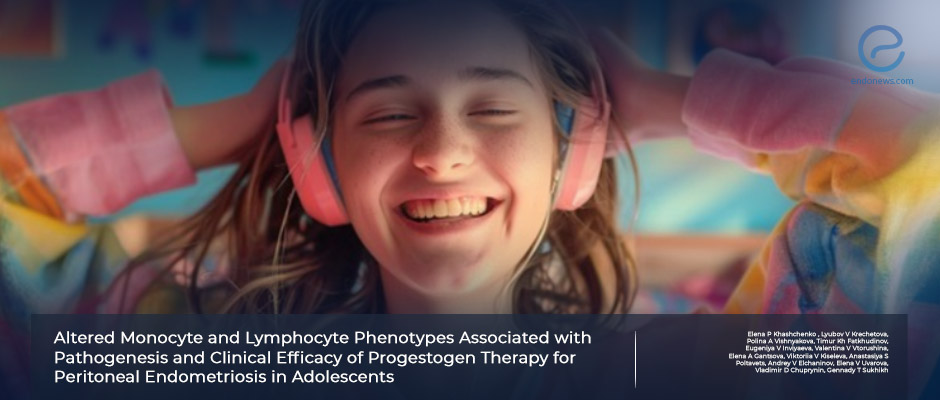Immune Dynamics in Adolescent Peritoneal Endometriosis
Nov 15, 2024
Immune Alterations Linked to Diagnosis and Treatment Response in Adolescent Endometriosis
Key Points
Highlight
- Adolescents with peritoneal endometriosis exhibit early immune imbalances, which correlate with disease severity and pain relief after progestagen therapy.
Importance
- These immune markers may aid in early diagnosis and serve as indicators of therapeutic efficacy for managing Peritoneal Endometriosis symptoms in adolescents.
What’s done here?
- This case–control study included 50 adolescent girls with laparoscopically confirmed peeritoneal endometriosis and 20 age-matched controls.
- Tissue and peritoneal fluid samples were collected, cryopreserved, and later analyzed for immune cell profiles.
- Monocyte and lymphocyte subpopulations in blood and peritoneal fluid were assessed via flow cytometry biomarkers were measured by immunoassays.
Key results
- Immune imbalances: Peritoneal endometriosis patients had elevated pro-inflammatory CD86+ monocytes and decreased CD16+ monocytes, linked to chronic pelvic pain and dysmenorrhea.
- Therapy response: Progestogen therapy increased CD206+ monocytes and cytotoxic NK cells, while decreasing CD163+ monocytes, corresponding with reduced pain and inflammation.
- Predictive markers: Elevated cytotoxic NK cells were associated with better pain relief, suggesting they could predict therapeutic efficacy.
- Amenorrhea as a marker: Progestogen-induced amenorrhea in 64% of patients correlated with changes in immune markers, supporting its role as a therapeutic indicator.
Lay Summary
In a study published in the Cells, Khashchenko et. al investigated the potential role of immune cell imbalances in adolescent peritoneal endometriosis, and their potential impact on disease progression and response to progestogen therapy.
This study provides new insights into how immune imbalances in adolescents with PE may be linked to disease symptoms and development. By analyzing immune cell profiles in 50 adolescent girls with PE and comparing them to those without, researchers found that inflammatory immune cells, especially CD86+ monocytes, were elevated in the PE group and closely linked to symptoms like chronic pain. Interestingly, anti-inflammatory cells, such as CD206+ monocytes, were also higher in these adolescents, suggesting that an immune imbalance emerge early in the disease course and play a role in sustaining the condition.
The study further examined the effects of a one-year course of progestogen therapy, which appeared to partially correct the immune dysregulation. After treatment, there was a significant increase in CD56dimCD16bright NK cells, which help target abnormal cells, alongside a reduction in certain inflammation-promoting monocytes. Despite these improvements, some immune markers remained elevated.
This work also underscores the importance of understanding the unique immune landscape in adolescents with PE. Monitoring immune cell markers, such as CD56dimCD16bright NK cells and CD206+ monocytes, could one day help clinicians predict and optimize treatment responses. Through further research, these findings may contribute to developing tailored, more effective management strategies for endometriosis in younger patients.
Research Source: https://pubmed.ncbi.nlm.nih.gov/39056769/
Monocytes lymphocytes white blood cells phenotype progesterone therapy

